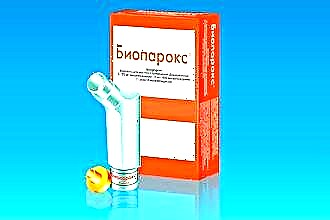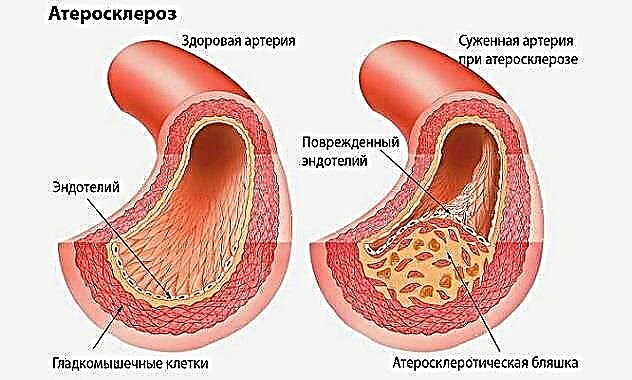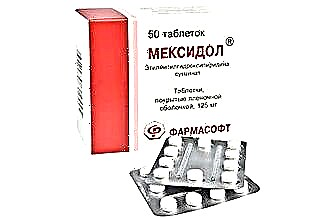The so-called dry runny nose is caused by inflammation of the mucous membrane of the nasal cavity, but it is not characterized by the appearance of liquid mucous secretions. In this case, the patient has a stuffy nose, crusts form in the nasal passages, a headache and a number of additional symptoms worries. In medical practice, this condition is known as dry rhinitis.
Dry rhinitis is a disease characterized by chronic inflammation of the nasal mucosa and atrophic processes of the epithelial and nervous tissue.
With dry rhinitis, first the mucous membrane atrophies - it becomes dehydrated, thinned, and then the nerve cells, which leads to a progressive deterioration of the sense of smell.
What are the reasons for this condition? Can it be prevented? Read about it in our article.
How does a dry runny nose develop?
As already mentioned, the pathogenesis of dry rhinitis is based on chronic inflammation, accompanied by atrophic processes in the nasopharynx. Atrophy refers to the disruption of the function and size of a tissue / organ due to inadequate nutrition.
So, with dry rhinitis, blood circulation in the nasopharynx is disrupted, as a result of which the cells of the mucous membrane receive insufficient oxygen and nutrients.
Insufficient blood supply causes the mucus-producing goblet cells to die. This leads to the fact that the mucous membrane becomes dry and becomes thinner over time. Dry and thin mucous membranes are less elastic and more sensitive to pressure changes, so patients with dry rhinitis often suffer from nosebleeds.
If untreated, the disease continues to progress. Following the mucous membrane, atrophy affects the nerve fibers, as a result of which the patient's sense of smell is dulled. Next, morphological rearrangements of the nose begin: the nasal passages expand, the structure of the cartilage is disrupted. Externally, the expansion of the nasal passages is hardly noticeable, but when examining the ENT, it will definitely pay attention to this.
Most often, anterior dry rhinitis develops - a chronic inflammation of the anterior part of the nasopharynx.
Causes of the disease
Dry rhinitis is a multifactorial disease, in the development of which both internal and external causes play a role. This means that there are a number of factors that increase the risk of developing dry rhinitis, but they do not cause the disease in everyone, but only in predisposed people. This is why dry rhinitis is often found in several family members.
The factors that provoke the development of dry rhinitis include:
- deficiency of vitamin D in the diet;
- lack of Calcium, Iron;
- hormonal changes (puberty, pregnancy, the use of hormone-containing drugs);
- long-term or frequent infectious diseases of the nasopharynx, persistent runny nose;
- frequent inhalation of harmful gases, for example, working with gaseous chemicals;
- abuse of vasoconstrictor nasal drops;
- trauma to the nose;
- transfer of operations on the nasopharynx;
- a sharp change in weather conditions, for example, moving to a country with a different climate.
Often, the disease develops as a result of the action of several of the listed factors at once.
Symptoms of the disease
 Dry rhinitis is a progressive disease, so its treatment should be started as early as possible, before complications appear (loss of smell, etc.). How to understand that you are developing this violation?
Dry rhinitis is a progressive disease, so its treatment should be started as early as possible, before complications appear (loss of smell, etc.). How to understand that you are developing this violation?
Dry rhinitis has the following symptoms:
- dry nose;
- periodic burning sensation in the nasopharynx;
- a feeling of a foreign body in the nose (caused by the formation of thick, viscous mucus, which is very difficult to blow your nose);
- nasal congestion;
- frequent nosebleeds;
- the formation of dark green crusts in the nasal passages;
- headache (triggered by a violation of nasal breathing);
- increased body temperature (but may remain normal);
- if the disease bothers for a long time, a deterioration in the sense of smell, and then taste, is added to the listed symptoms.
People with dry rhinitis can ignore the symptoms of the disease for a long time, while the condition of the mucous membrane only gets worse over the years, and the symptoms become more pronounced. Of course, this is irresponsible in relation to your health. Dry runny nose needs treatment! When the first symptoms of dry rhinitis appear, you should seek the advice of a specialist.
Treatment
Dry rhinitis treatment includes two directions. First, you need to get rid of the cause of the inflammation. This can be a chronic infection, constant inhalation of irritating substances, trauma to the nose, etc. Secondly, it is necessary to stop the atrophic processes in the nasal cavity. To achieve this, it is necessary to moisten the mucous membrane, since it is the lack of mucus that provokes the development of further disorders, such as the formation of crusts, thinning of the mucous membrane, fragility of blood vessels, etc.
To suppress chronic inflammation, the following are used:
 In case of a bacterial infection - irrigation of the nose with antiseptic sprays or topical antibiotics (as prescribed by a doctor). For example, nasal sprays Isofra, Bioparox, Polidex have a pronounced antibacterial effect. In some cases, a course of systemic antibiotics (tablets or injections) is prescribed.
In case of a bacterial infection - irrigation of the nose with antiseptic sprays or topical antibiotics (as prescribed by a doctor). For example, nasal sprays Isofra, Bioparox, Polidex have a pronounced antibacterial effect. In some cases, a course of systemic antibiotics (tablets or injections) is prescribed.- Oil-based nasal drops and nasal sprays such as Pinosol containing pine, eucalyptus and mint oils also help relieve inflammation. Oil-based preparations not only help relieve inflammation, but also prevent the mucous membrane from drying out. They form the thinnest film on the surface of the epithelium, which does not allow moisture to evaporate.
- Protargol is another anti-inflammatory nasal spray. It contains microparticles of silver that inhibit most bacteria and fungi.
- If chronic inflammation is accompanied by severe swelling or itching, antihistamines such as Claritin, Suprastin, Cetirizine, etc. are prescribed.
- If the inflammation is severe, the doctor will prescribe a corticosteroid to treat the nose. They are very effective, however, if used incorrectly (for example, increasing the dose), they have a number of side effects and are addictive. Drugs containing corticosteroids include Polydex, Fliksonase, Amavis, Nasonex, Aldecin. They should only be taken after consulting your doctor.
Do not use vasoconstrictor drops with dry rhinitis. They have a negative effect on the thinned mucosa - they dry it out, provoke a burning sensation, and cause fragility of blood vessels.
To stop atrophic processes in the mucous membrane, you should:
- Irrigate the nasal cavity regularly with saline, seawater sprays, or simply boiled salted water. This procedure compensates for the lack of phlegm in the nasopharynx and promotes the regeneration of atrophied tissues. In addition, salted water washes away microorganisms and irritants that enter the nasopharynx with inhaled air, which reduces the likelihood of developing infections of the ENT organs.
- Lubricate the nasal cavity with oils (olive, sea buckthorn) - this will help to retain moisture in the mucous membrane. The effect of the oils is especially noticeable if you are treating coryza anterior dryness.
- Lubricate the nasal passages with naphthalan, lanolin ointment, petroleum jelly (gives the same result as lubrication with oil).
- Rinse your nose with a light alkaline solution (in a glass of water - a pinch of baking soda). Alkali helps to remove dry crusts that make breathing difficult.
- Conduct steam inhalation.As a solution for inhalation, you can use saline, mineral water, water with soda. You can also use herbal infusions (chamomile, eucalyptus leaves) or add a few drops of tea tree or eucalyptus essential oil to the water.
- To accelerate the regeneration of soft tissues, you can use Solcoseryl gel.
Environmental factors play an important role in recovery, therefore inhalation of harmful vapors and irritants should be avoided during treatment. The air in the patient's room should be clean and humid. For people who often experience dry nose, it is recommended to purchase a humidifier. It is advisable to give up smoking. Walking in the forest and near water bodies, especially near the sea, has a good effect on mucous membranes.

 Dry rhinitis is a disease characterized by chronic inflammation of the nasal mucosa and atrophic processes of the epithelial and nervous tissue.
Dry rhinitis is a disease characterized by chronic inflammation of the nasal mucosa and atrophic processes of the epithelial and nervous tissue. In case of a bacterial infection - irrigation of the nose with antiseptic sprays or topical antibiotics (as prescribed by a doctor). For example, nasal sprays Isofra, Bioparox, Polidex have a pronounced antibacterial effect. In some cases, a course of systemic antibiotics (tablets or injections) is prescribed.
In case of a bacterial infection - irrigation of the nose with antiseptic sprays or topical antibiotics (as prescribed by a doctor). For example, nasal sprays Isofra, Bioparox, Polidex have a pronounced antibacterial effect. In some cases, a course of systemic antibiotics (tablets or injections) is prescribed.

